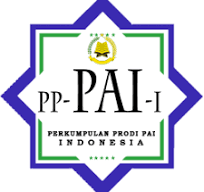URGENSI BANK SAMPAH DALAM MENCIPTAKAN KEBERSIHAN LINGKUNGAN DALAM PRESPEKTIF PENDIDIKAN ISLAM
DOI:
https://doi.org/10.54069/attaqwa.v17i02.158Abstract
A clean environment is a prerequisite in creating tranquility, and environmental beauty that has an impact on the soul. Waste management is a problem that makes the environment can not be clean and beautiful. One solution in waste management is a waste bank. The concept of garbage banks began to be realized in the village of Manyarejo on Jl. Satelit III RT.01 RW.01 which was socialized by PUSDA Kota about environmental issues and greening programs, and triggered the name "RUMAH KOMPOS BERSEMI", where the meaning of the word blossom itself is a natural beautiful clean. The garbage bank program that smells social from the community or residents who have a form of concern for the environment is to help reduce the problem of waste and make the environment clean around places of worship so that residents who worship become comfortable and at home. The waste bank program is divided into two: short-term programs, the manufacture of compost made from organic waste of residents, sorting garbage, making handicrafts with inorganic waste raw materials that are not sold so that they can attract tourists, the manufacture of soap fromjelanta oil. Long-term program of making briquettes from organic waste, making vases or flower pots from unused glass bottles and greening in villages so that the environment in Manyarejo village is cleaner because the problem of waste can be resolved, in addition, the community is more harmonious, fostering creativity by recycling waste that was previously discarded into useful goods and getting additional income from the sale of waste
Downloads
References
ABambang Suwerda, Bank sampah Kajian Teori dan Penerapan, (Yogyakarta: Pustaka Rihama, 2012)
Emi Handayani, Antara Kita dan Sampah, (Surabaya: Paramita Puji Utama, 2016)
Endang Syarif Nurulloh, “Pendidikan Islam dan Pengembangan Kesadaran Lingkungan,” Penelitian Pendidikan Islam, 2 (Februari, 2019), h. 224.
Gunawan, Rahasia Di Balik Sampah, (t.t.: Arta Sarana Media, 2016), h. 47-48
H.R. Mulyanto, Ilmu Lingkungan, (Yogyakarta: Mobius, 2018)
Imam Ahmad bin Hanbal, Musnad Imam Ahmad bin Hanbal, (t.t.: Muassaturrisalah, 2001)
Kepustakaan Nasional, Kamus Besar Bahasa Indonesia Edisi Baru, (Jakarta: Pustaka Phoenix, 2010)
Lexy J. Moleong, Metodologi Penelitian Kualitatif, (Bandung: PT Remaja Rosdakarya, 2016)
M. Takdir dan Try Edie M, Yuk, Kita Peduli Sampah Sebagai Wujud Cinta Lingkungan, (Surabaya: Nusa Jaya, 2016)
Perkumpulan Sasmita, Panduan Praktis Pengelolaan Bank Sampah, (Yogyakarta: Grahatma Semesta, t.th), h. 4.
Rozak.“Peran Bank Sampah Warga Peduli Lingkungan (WPL) dalam Pemberdayaan Perekonomian nasabah”. h. 15.
Said Agil Siroj, Fiqih Penanggulangan Sampah Plastik, (Jakarta: Lembaga Bahtsul Masail (LBM) PBNU, t.th)
Tim Edukatif HTS, Buku Ajar Geografi, (Solo: CV Hayati Tumbuh Besar, tt)
Tim New Star, Geografi & Sosiologi, (Jateng: CV. Media Karya Putra, t.th)
Tim Pusda Kota Universitas Surabaya, Panduan Praktis Pengelolaan Sampah Organik (Surabaya: Tim Pusdakota. t.th.)
Downloads
Published
How to Cite
Issue
Section
License
Copyright (c) 2021 Nur Khamim, Moh. Syamsi

This work is licensed under a Creative Commons Attribution-NonCommercial 4.0 International License.





